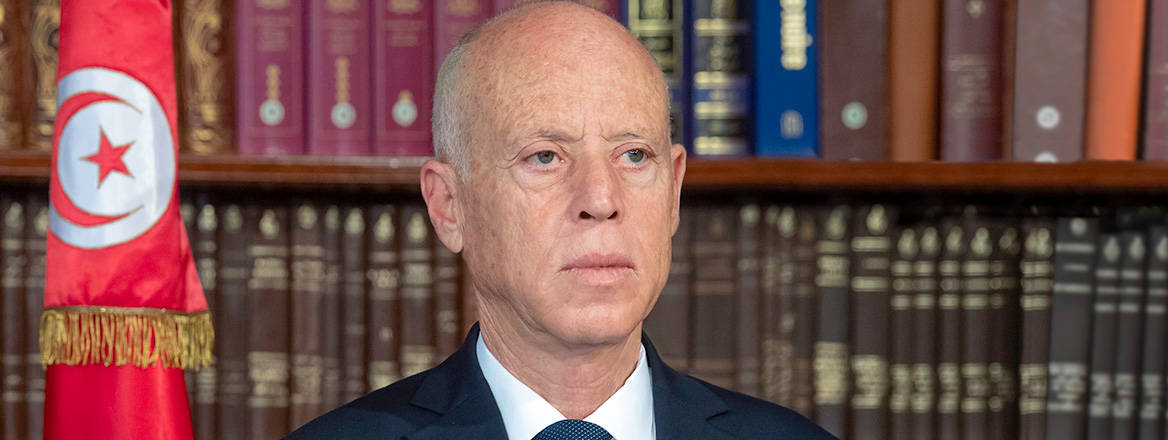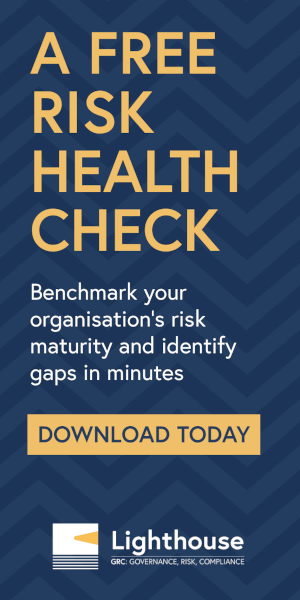RUSI
|
|
Tunisia’s Authoritarian Turn
A country once labelled the Arab Spring's only 'success story' is now in danger of going backwards.

Several weeks ago, Noureddine Bhiri, deputy chairman of Tunisia’s Ennahda Party, was arrested on terrorism charges. Bundled away in the middle of the night, Bhiri’s arrest is part of an ongoing crackdown in the country which threatens to reverse Tunisia’s democratic gains. As well as arresting political opponents, President Kais Saied’s government has been accused of turning a blind eye to police violence against journalists and of meeting public protests with repression. Saied’s tactics are a worrying echo of those used by Zine al-Abidine Ben Ali’s regime, as state internal security forces use overly broad anti-terror legislation to threaten political opponents, students, human rights activists and journalists.
Many commentators viewed the 2011 revolution in Tunisia as the Arab Spring’s only ‘success story’, however, the situation in the country today suggests that this was premature. Post-revolution governments have failed to deliver profound structural changes. They have also proved incapable of tackling long-term socioeconomic grievances such as unemployment and regional disparities. Over a decade on from 2011, many in Tunisia believe that the revolution has failed to live up to its early promise. Indeed, Saied appeared to admit as much in December 2020 when he launched a national dialogue ‘to correct the revolution that has deviated from its goals a decade after its outbreak’. The release of former regime officials and the failure to recoup stolen assets have only fed popular disillusionment.
These frustrations came to a head on 25 July 2021 when Saied sacked Prime Minister Hichem Mechichi and dissolved parliament. These were decisions largely welcomed by the Tunisian people, as patience had been wearing thin with a government that had failed to get to grips with the country’s stagnant economy and the coronavirus pandemic. The vaccine rollout was proceeding slowly: by 13 July 2021 Tunisia had fully vaccinated only 6% of its population.
Painting himself as a political outsider, Saied promised to tackle corruption, Covid and the economy. Indeed, early signs appeared promising. Tunisia vaccinated 551,000 people on a single day in August last year after the military was deployed to help with the vaccine programme.
Since Ben Ali left power, the country’s politics has been based around the formation of loose coalitions and ‘national unity governments’. These governments have been unable (or unwilling) to enact bold economic and social reforms for fear of splintering fragile coalitions. Paralysis has thus gripped Tunisia’s political system since 2011. Bolstered by his early successes and high polling, Saied’s pitch to the Tunisian people was that only he is capable of breaking this cycle.
Many Tunisians appear to view Saied’s concentration of powers as an acceptable price to pay so long as Tunisia’s economic and health crises are addressed
Since July, Saied has sought to consolidate his power. In September, he appointed Najla Bouden, a university professor and political unknown, as prime minister. Bouden’s minimal political experience led critics to suggest that Saied’s decision was calculated towards ensuring that the prime minister’s office would be unable to challenge Saied politically. Indeed, a week before Bouden’s appointment, Saied announced that he would amend the 2014 constitution and rule by decree. Human Rights Watch described this move as ‘a first step towards authoritarianism’, however, polls in January 2022 showed that Saied, while experiencing declining support, remained ‘the most popular political figure in the country’. Many Tunisians appear to view Saied’s concentration of powers as an acceptable price to pay so long as Tunisia’s economic and health crises are addressed.
In reality, however, despite dressing his decisions in revolutionary symbolism, Saied’s rule has largely continued to follow the path set by previous governments. Economic problems have been ignored and the decision to revoke Law 38, which compelled the government to provide public sector jobs to the long-term unemployed, suggests little appetite to break with the economic orthodoxy. In addition, police violence and repression have led commentators such as Simon Speakman Cordall to suggest that Saied has entered an ‘unholy marriage of convenience with Tunisia’s police’ – hardly the promised new broom in Tunisian politics.
Initial regional responses to Saied’s decision to suspend parliament were mixed. Turkey was quick to condemn Saied’s initial decision, while Saudi Arabia lent its political support. Tunisia’s political crisis has been subsumed within the wider regional struggle between Turkey and Qatar on the one hand, and Saudi Arabia, the UAE and Egypt on the other. Turkey saw Saied’s move as a direct attack on its Ennahda allies. Indeed, Rached Ghannouchi, leader of the Ennahda party, was often seen advertising his personal connections with Turkey’s president, Recep Tayyip Erdogan. Leveraging this wider regional clash to his own advantage, Saied lent on Saudi Arabia and the UAE for economic support. However, as regional alliances constantly shift, support from foreign powers premised on containing Ennahda is not a long-term strategy or solution for fixing Tunisia’s economy.
The international community’s response to Saied’s measures has been muted and cautious. Initially, the US and EU held back from offering any serious criticism. Instead, they adopted a ‘wait-and-see’ approach, with the EU offering a statement urging ‘all Tunisian actors to respect the Constitution, its institutions and the rule of law’. While initial reactions may have been tempered by a desire to avoid offering support to the dismissed Ennahda-led parliament, follow-up engagement with Saied has been similarly ineffective. With the Taliban’s advance in Afghanistan dominating headlines at the time, US Deputy National Security Advisor Jon Finer’s visit to Tunisia in August 2021 went almost unnoticed in the international news media.
As long as European states continue to view North Africa through a securitised lens, diplomatic engagement on democratic reforms and human rights issues is likely to take a back seat
EU member states have also limited their calls for a return to normality. Italian Foreign Minister Luigi Di Maio’s visit to Tunisia last month focused on illegal migration rather than on Tunisia’s domestic political situation. As long as European states continue to view North Africa through a securitised lens which prioritises Europe’s concerns of counterterrorism, illegal migration and smuggling, then diplomatic engagement on democratic reforms and human rights issues is likely to take a back seat.
While Saied may have weathered the storms so far, the powerful General Union of Tunisian Workers is warning that his roadmap out of the current situation does not go far enough. On suspending parliament, Saied’s implicit offer to Tunisians was to choose between either effective governance or democracy. However, six months later, many Tunisians would say that they have neither.
Perhaps this year’s Africa Cup of Nations match between Tunisia and Mali, which ended in ‘a sudden explosion of drama’ when the referee blew the full-time whistle five minutes early, provides an apt metaphor for Tunisia’s current political crisis. Unlike the football, however, there seems little prospect of the Tunisian president bringing his rule to an early end.
Jack Senogles works at RUSI. He holds a postgraduate degree in Islamic and Middle Eastern Studies from a university in the Middle East and a BA in War Studies and History from King’s College London.
The views expressed in this Commentary are the author’s, and do not represent those of RUSI or any other institution.
Have an idea for a Commentary you’d like to write for us? Send a short pitch to commentaries@rusi.org and we’ll get back to you if it fits into our research interests. Full guidelines for contributors can be found here.
Original article link: https://rusi.org/explore-our-research/publications/commentary/tunisias-authoritarian-turn


